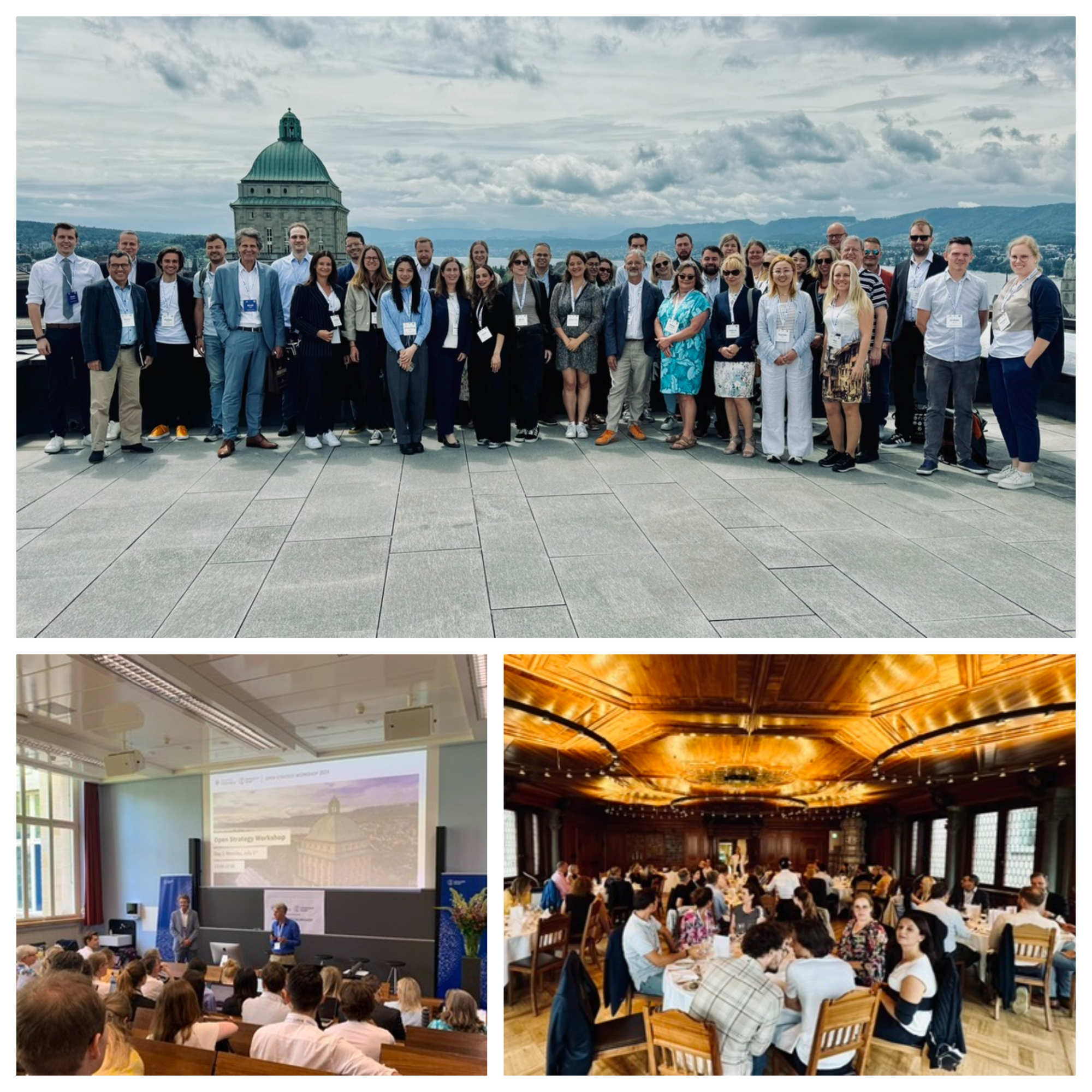Navigation auf uzh.ch
Navigation auf uzh.ch
David Seidl, Richard Whittington, Robin Engelbach, Theresa Langenmayr, Zoe Jonassen, Tania Räcker, and Benjamin Grossmann-Hensel
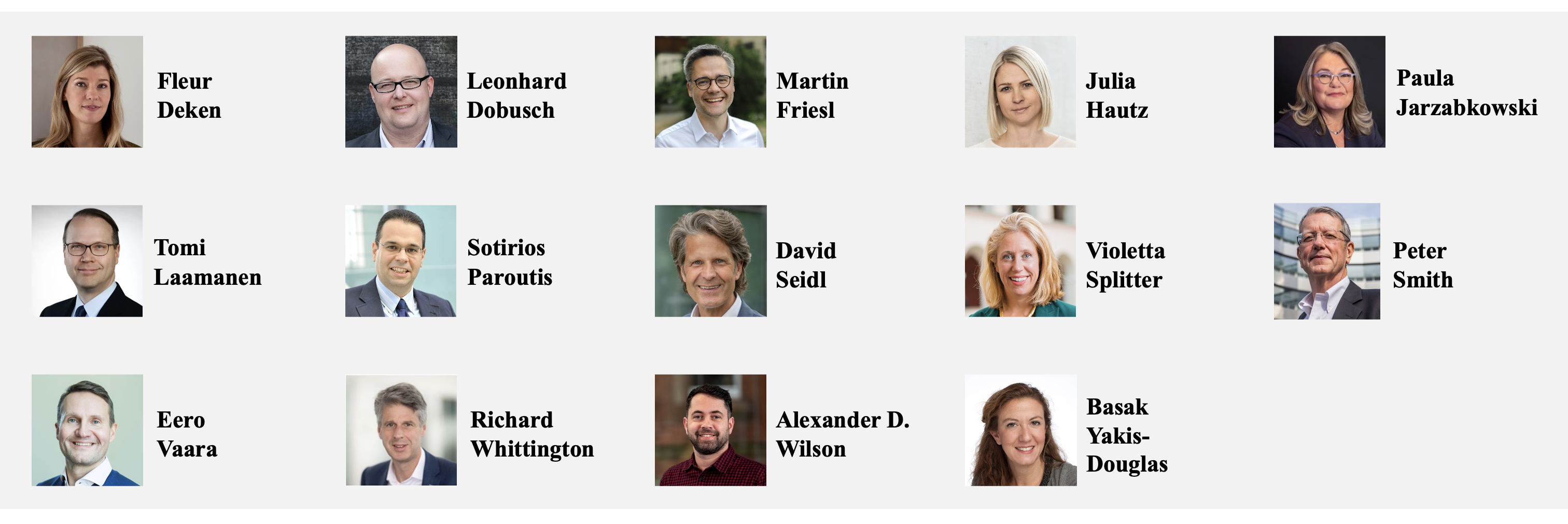
In early July, the University of Zurich hosted the Oxford & Zurich Open Strategy Workshop, a collaborative event with the University of Oxford.
The workshop brought together a diverse group of scholars and practitioners to take stock and determine future directions within the dynamic field of Open Strategy. Over two days, participants engaged in inspiring discussions about the Open Strategy phenomenon in strategy-making, which emphasizes transparency and inclusion in strategic processes.
Sunday evening already set the tone for the workshop with an informal pre-conference dinner, creating a great atmosphere and providing an opportunity for participants to catch up with colleagues and meet new members of the community.
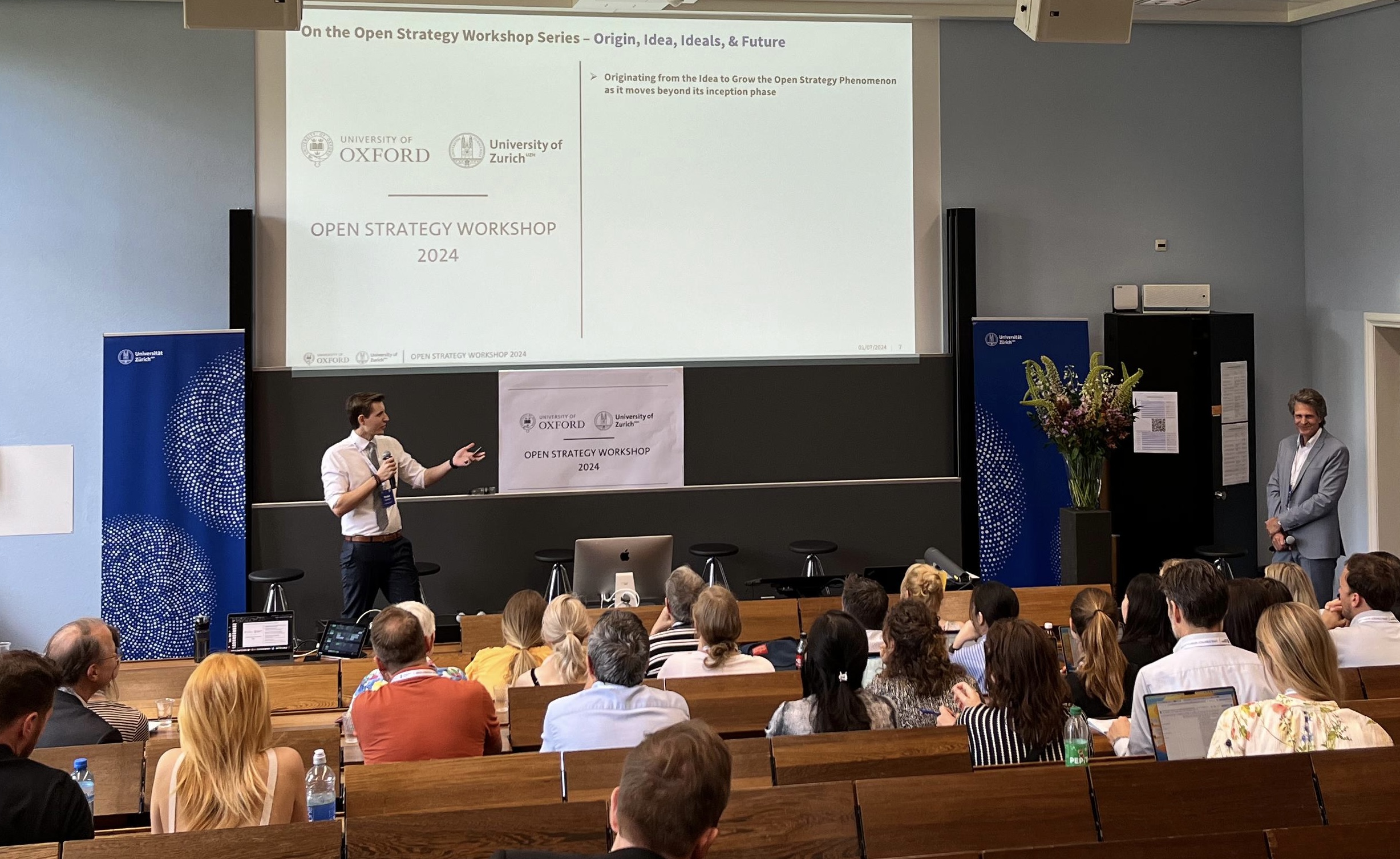
The official workshop program began on Monday noon with a walk-in welcome lunch, offering a great view over the city of Zurich. The opening session, led by David Seidl and Richard Whittington, highlighted the increasing pervasiveness of opening up strategy processes in today’s organizational settings.
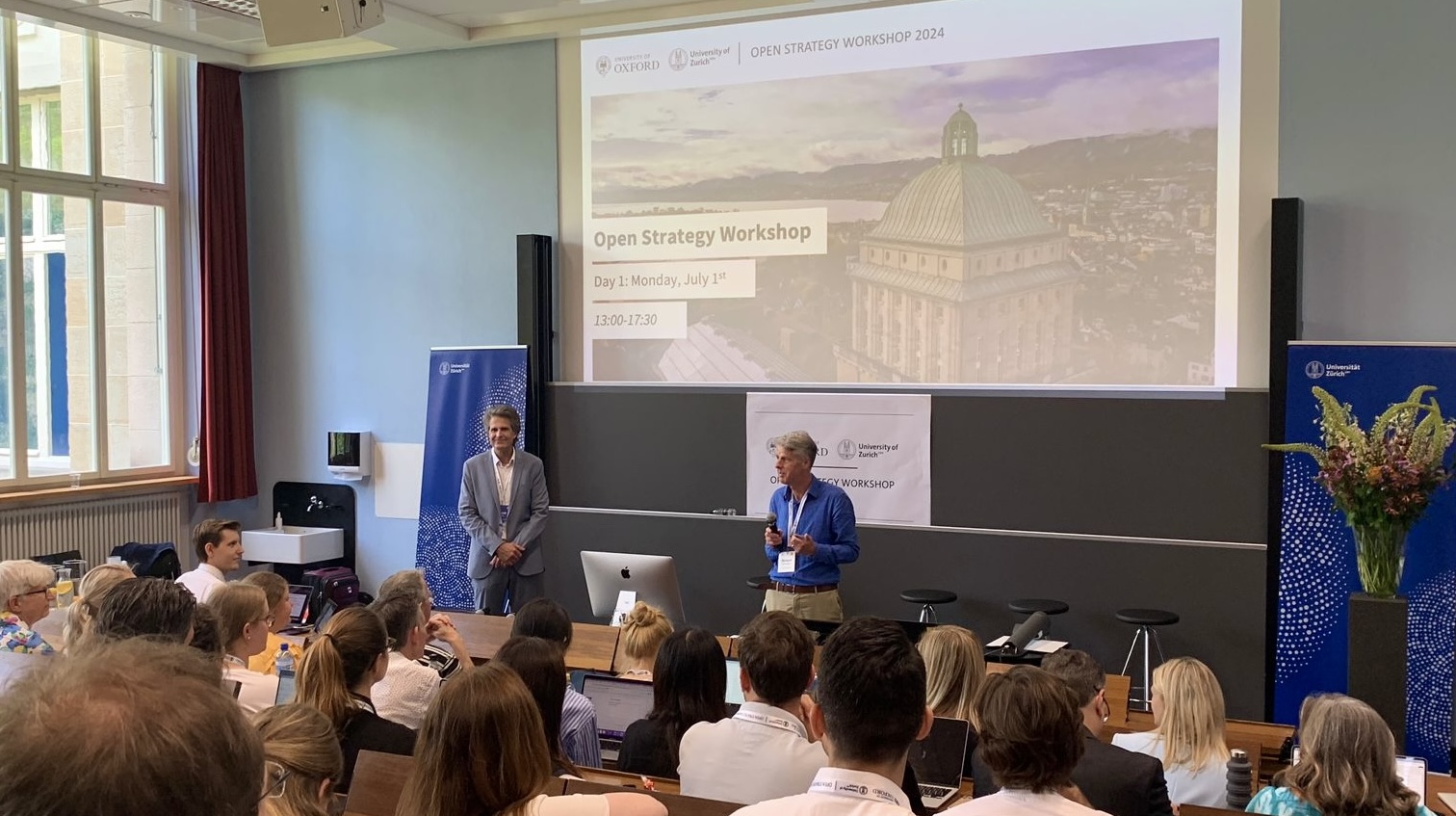
Commencing with an analysis of the current state of Open Strategy, the initial expert panel provided a comprehensive overview of the field. Chaired by David Seidl, the panel featured insights from Leonhard Dobusch on openness in general, Julia Hautz on inclusion, Basak Yakis-Douglas on transparency, Alex Wilson on technology, and Fleur Deken on inter-organizational strategizing, providing an exciting, inspirational, and informed basis for the entire workshop.
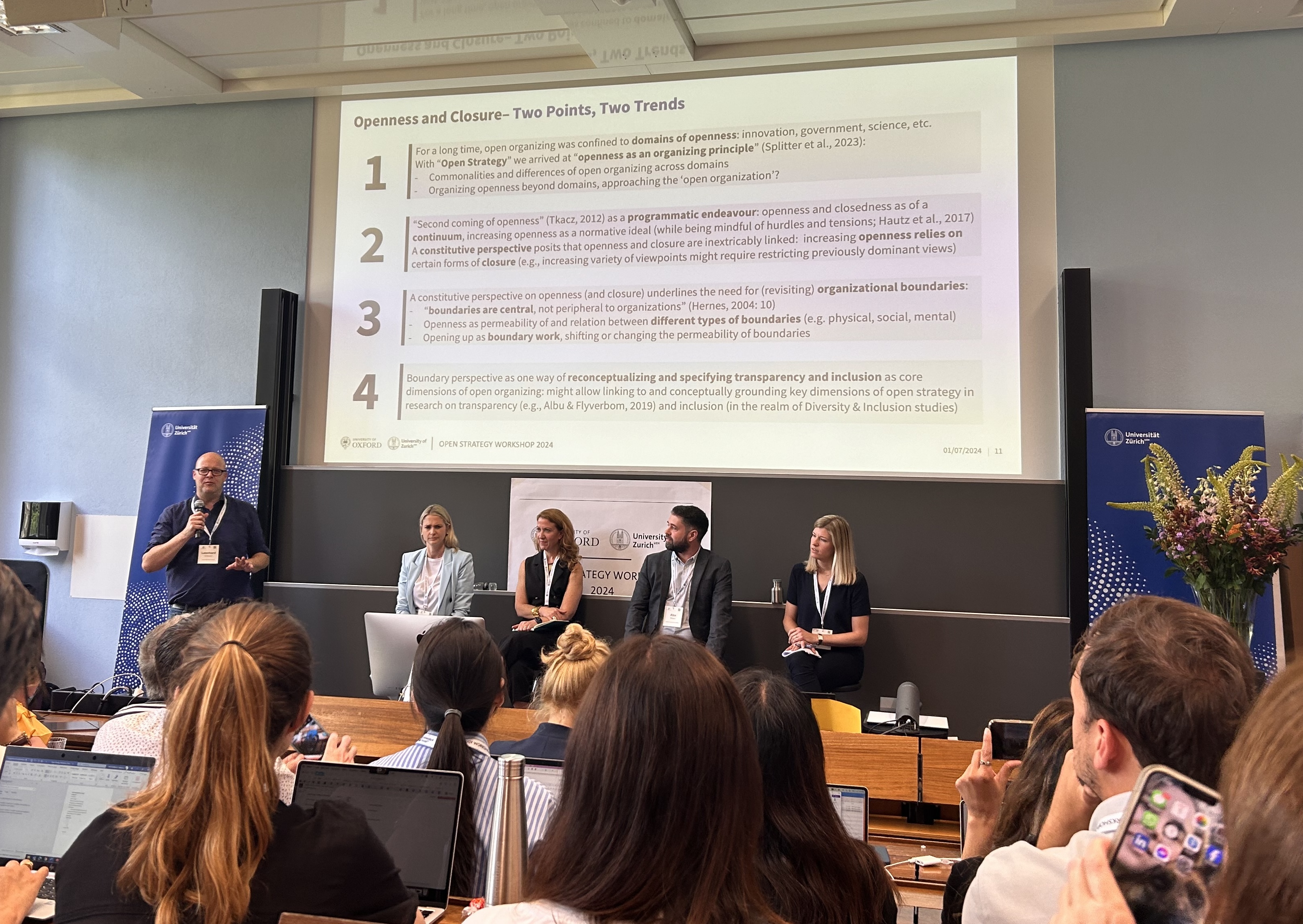
In the afternoon, participants engaged in a lively poster session, which facilitated deep discussions on themes such as integrative frameworks, meaning creation, and novel contexts in open strategizing. Topics explored included the role of stakeholders in strategy selection, integrating bottom-up and top-down approaches, and the challenges of implementing Open Strategy in different organizational contexts, organized around the central themes of integrative frameworks, meaning creation, and novel contexts. This poster session allowed for the exchange of innovative research ideas and created evocative relations among participants.
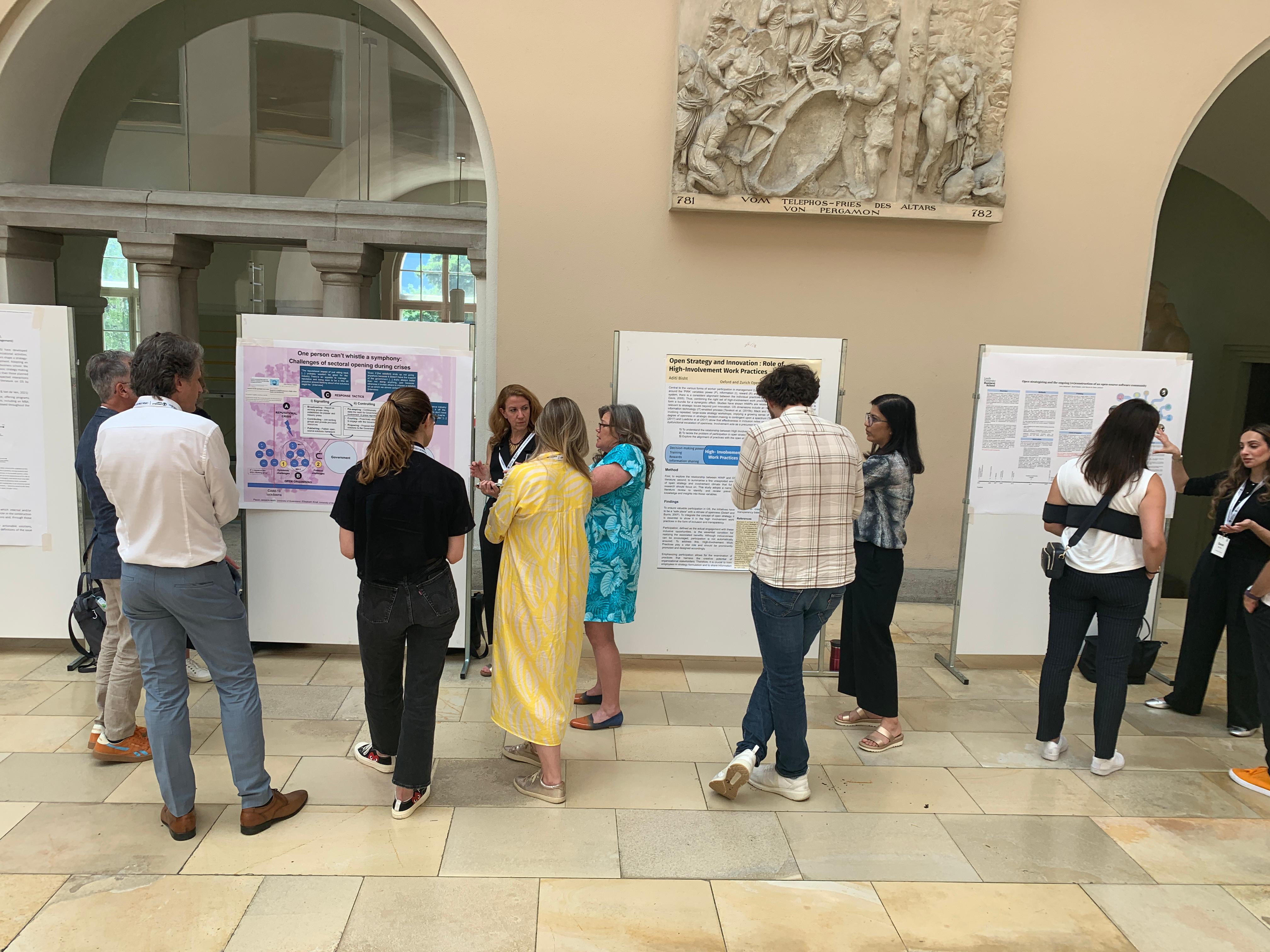
The day continued with a practitioner panel chaired by Paula Jarzabkowski, where experts from praxis shared their practical insights. Representatives from 20 Minuten of the Swiss media industry and the consultancy Innovative Management Partner (IMP) discussed their experiences with Open Strategy projects, providing valuable reflections from an industry perspective.
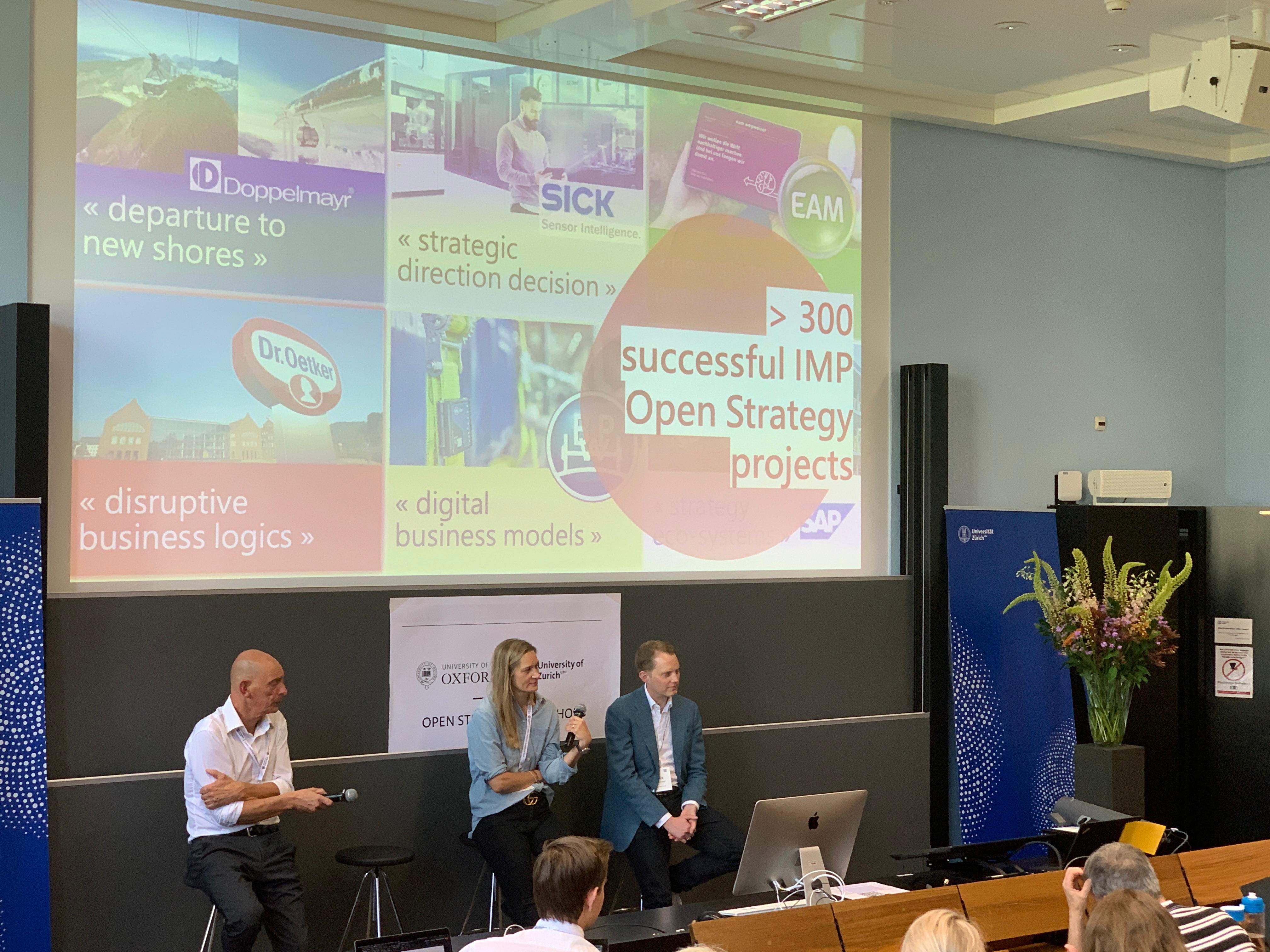
The evening concluded with a conference dinner at Zunfthaus zur Zimmerleuten, offering a cozy and traditional Swiss atmosphere that enhanced networking opportunities and brought the community even closer together.
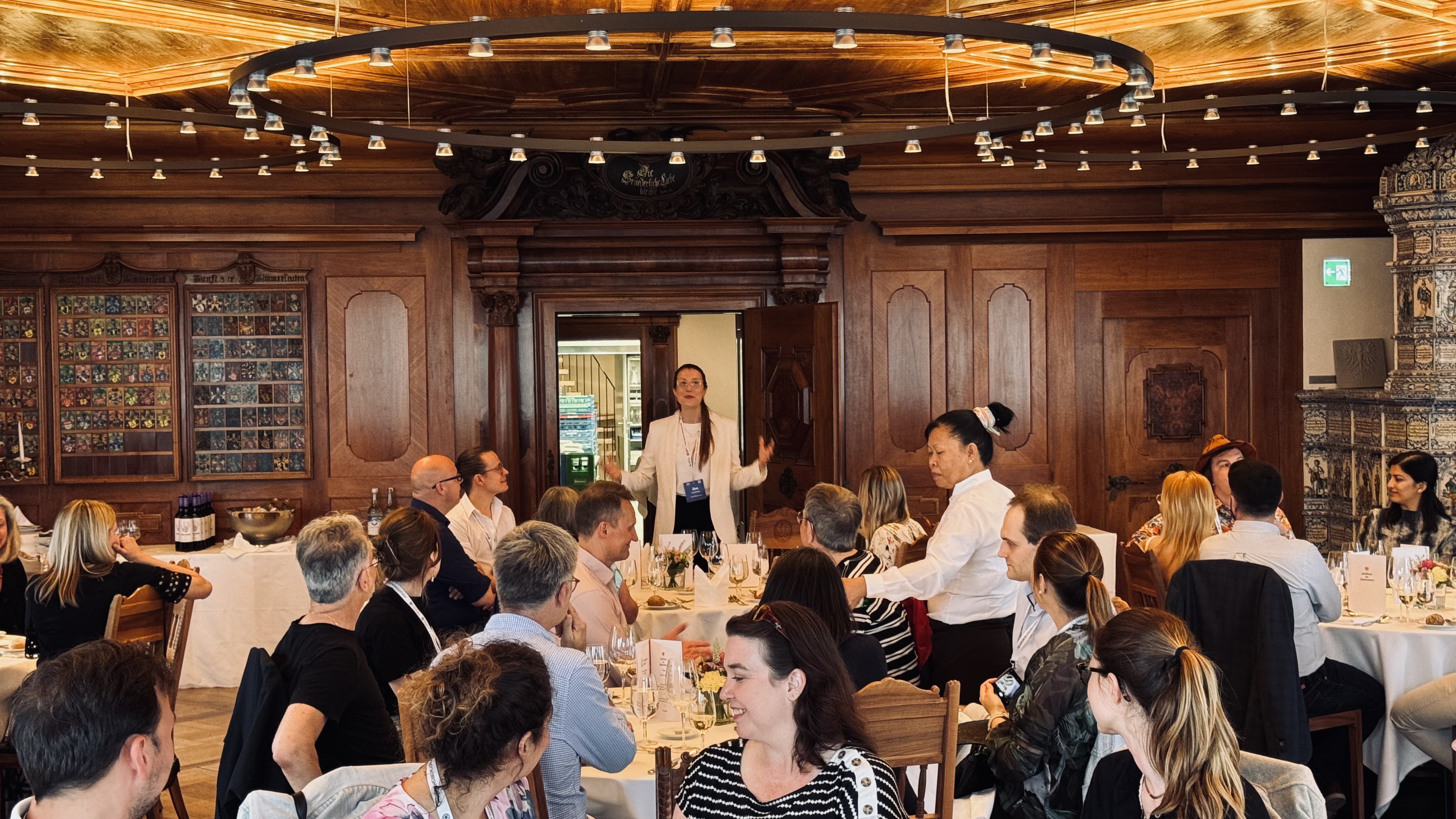
The second day encouraged participants to critically assess the implications and future directions of Open Strategy. The respective expert panel, chaired by Violetta Splitter, brought forward critical perspectives and challenging questions. Contributions from scholars such as Paula Jarzabkowski, Eero Vaara, Martin Friesl, and Tomi Laamanen enriched the dialogue and prompted critical reflection.
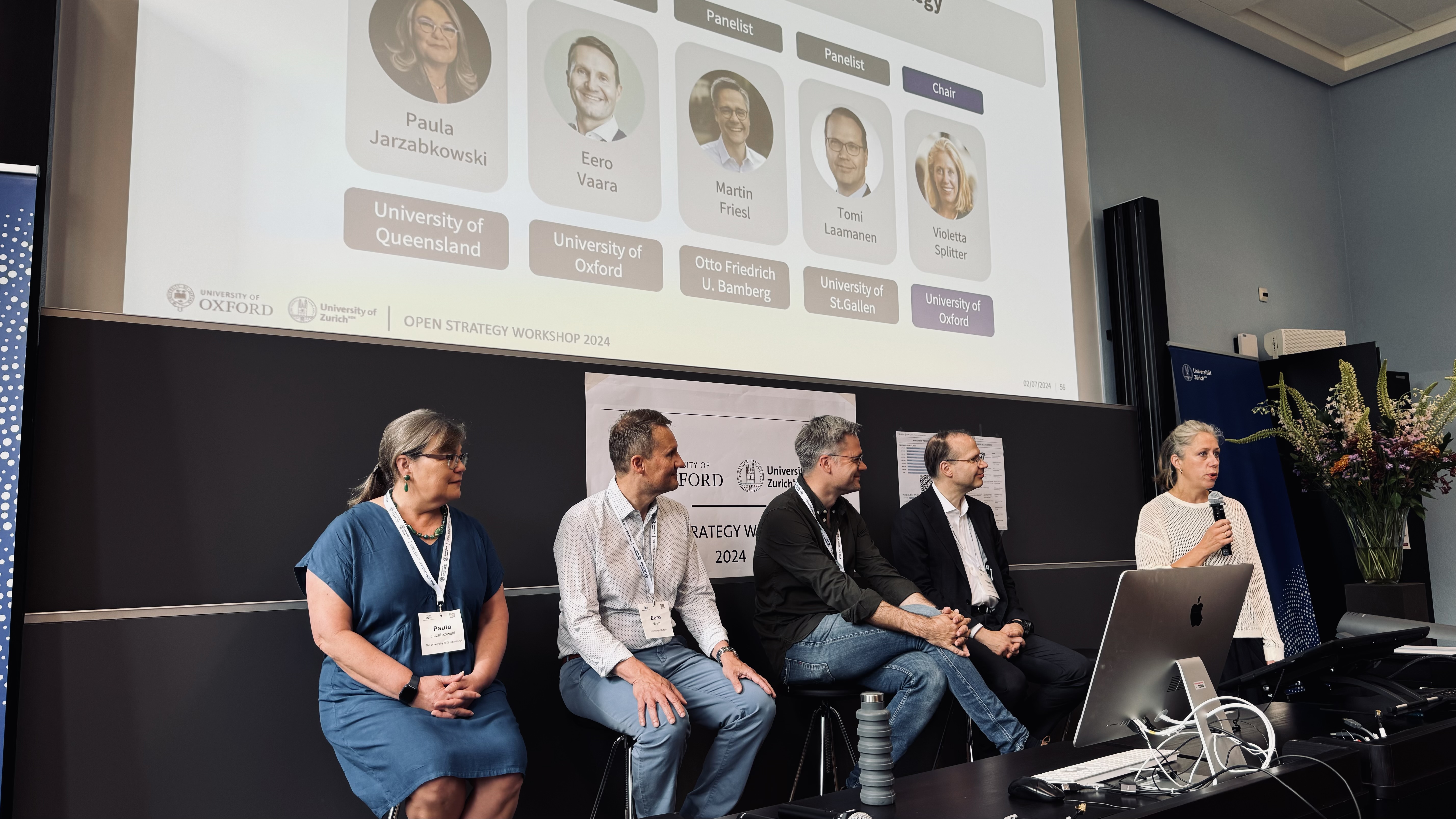
The morning featured a second poster session, focusing on themes like dilemmas and tensions in Open Strategy and experiences of Open Strategy. Presentations delved into paradoxical tensions as drivers of Open Strategy work, transparency efforts by corporate lobbyists, and the impact of employee inclusion in Open Strategy initiatives, sparking engaging discussions between junior and senior scholars.
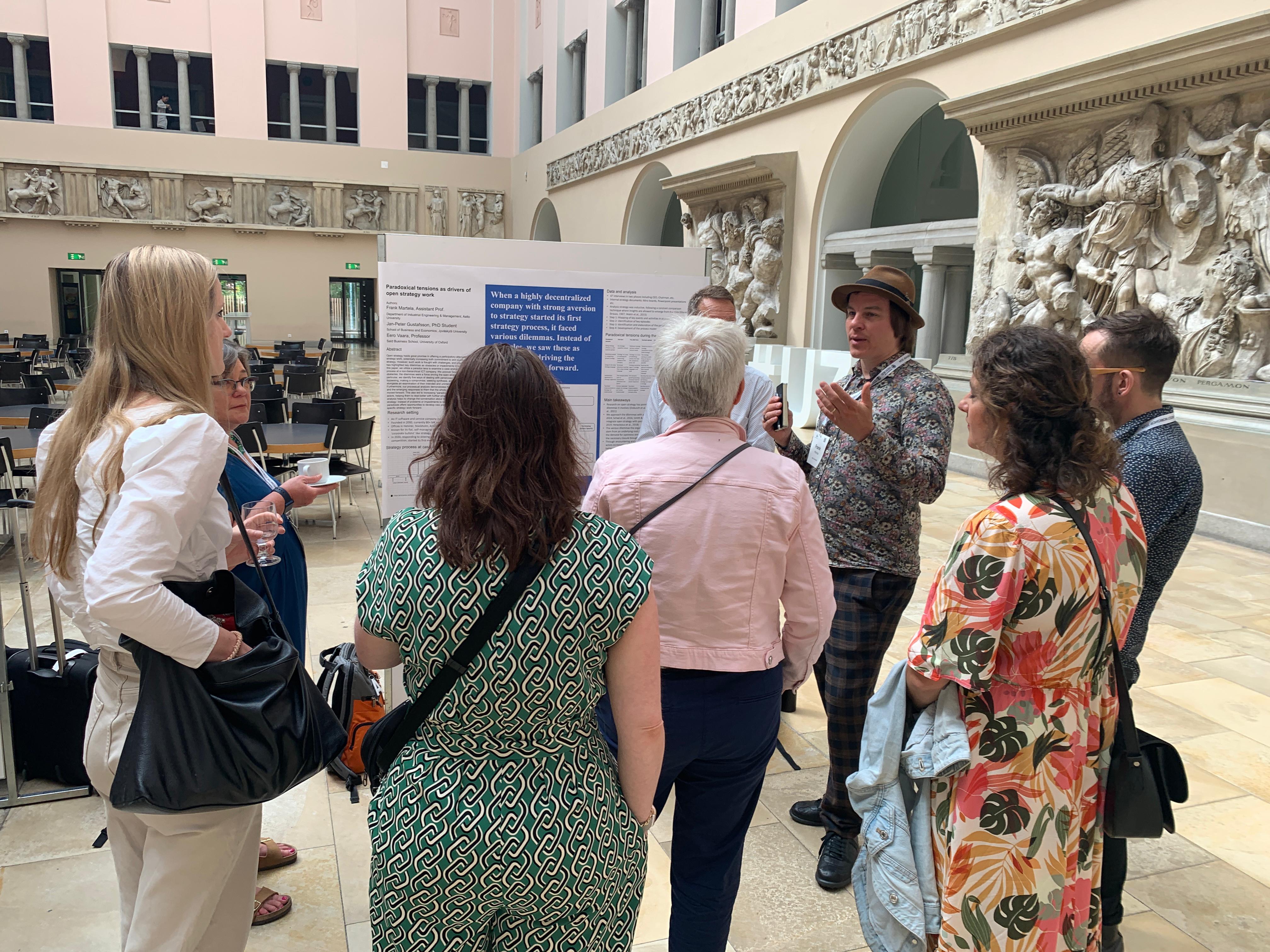
Synthesizing the workshop’s insights and outlining a forward-looking agenda for Open Strategy research, the final expert panel was chaired by Richard Whittington. Contributions from Peter Smith, Sotirios Paroutis, Violetta Splitter, and Winky Wu reflected on the insights gained during the entire workshop.

The workshop concluded with a farewell lunch, allowing participants to wrap up their ongoing exchanges and plan for potential future collaborations. For those attending the EGOS Colloquium, a joint train ride to Milan provided an opportunity to continue future planning and deepen connections.
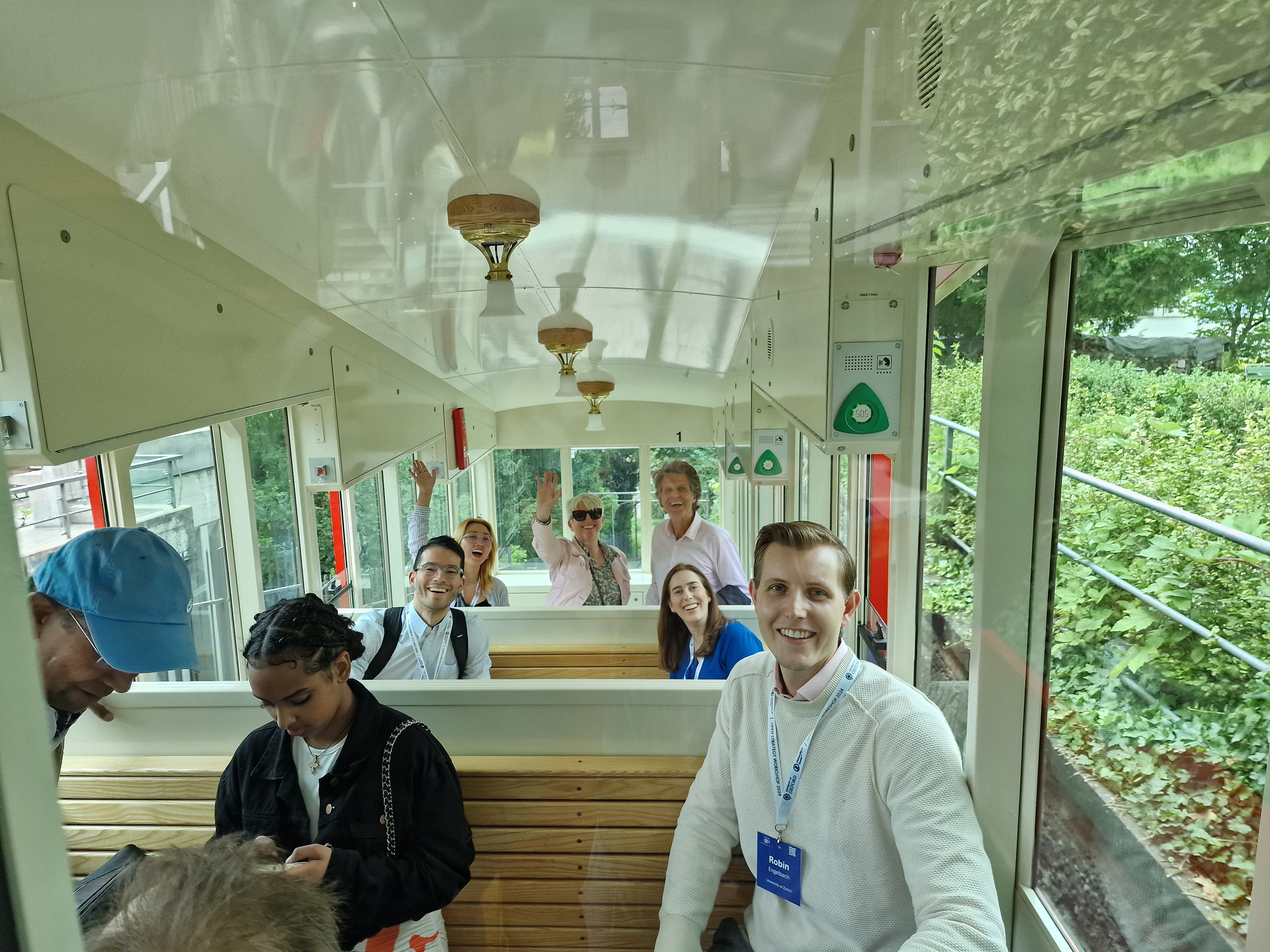
Overall, the workshop offered a dynamic platform for expanding and building the Open Strategy community, strengthening collaboration among scholars and practitioners, and showcasing the current state of Open Strategy research while charting a course for future research.
Looking ahead, we are excited to announce that the workshop will continue as a series, with the next event scheduled to take place at the University of Oxford on June 25-26, 2025. For more information visit the Open Strategy Workshop 2025 website and pre-register here.
We look forward to welcoming you to Oxford and continuing our journey in advancing the field of Open Strategy.
